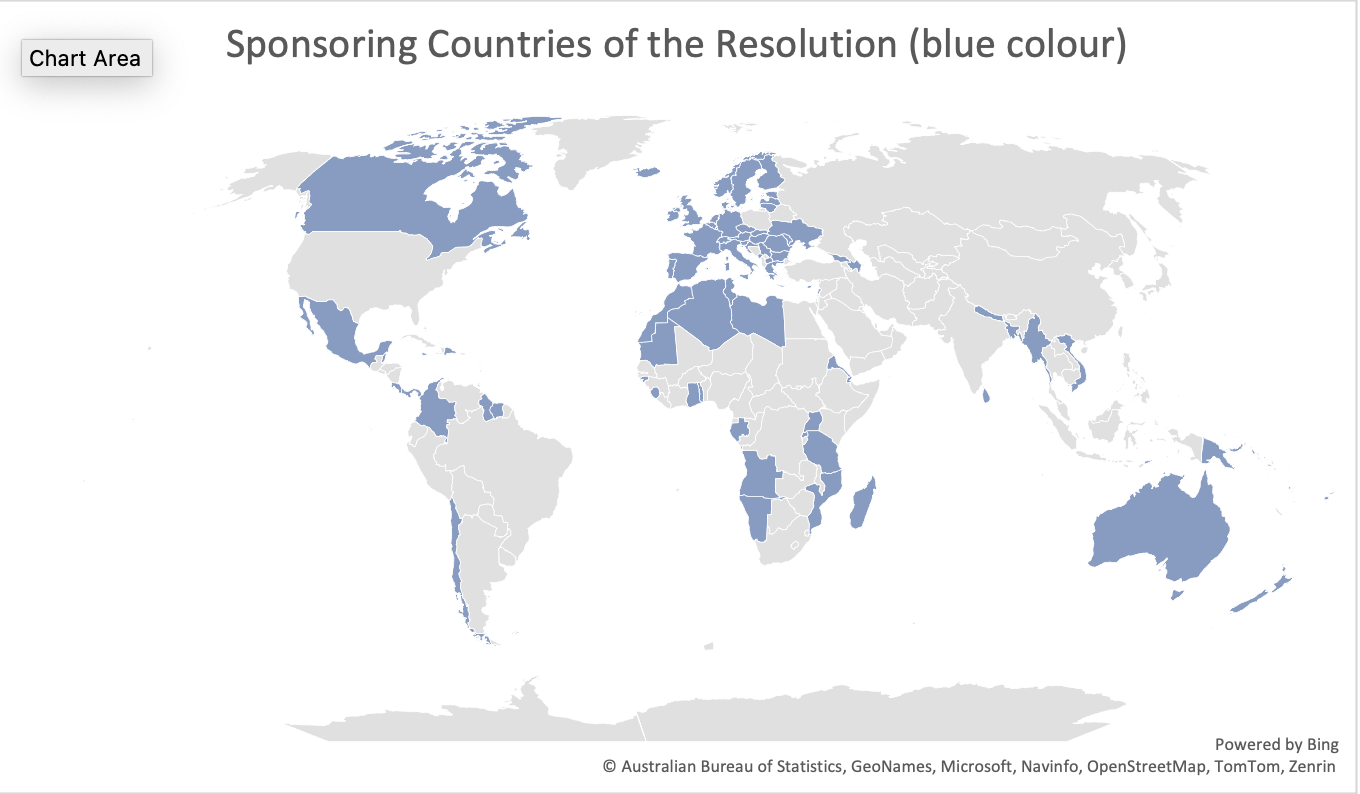
On 29 March 2023, the United Nations General Assembly (UNGA) adopted a resolution seeking an International Court of Justice (ICJ) advisory opinion on the obligations of States to combat climate change. The resolution was initiated by the Government of Vanuatu and co-sponsored by more than 130 States (see Figure below).
The UNGA Resolution takes note of the scientific consensus on human-induced climate change, recognises climate change as an unprecedented challenge to the present and future generations of humankind, and recalls previous resolutions and decisions relating to the protection of the global climate and the human right to a clean, healthy, and sustainable environment. The Resolution also highlights the importance of relevant international treaties such as the United Nations Framework Convention on Climate Change, the Kyoto Protocol, and the Paris Agreement.
The Resolution then notes the gap between current levels of adaptation and emission reductions and the levels needed to respond to the adverse effects of climate change. Expressing serious concerns about the unmet goals, the Resolution emphasises the need to increase action, support, and funding to address the issue. The Resolution notes with alarm that greenhouse gas emissions continue to rise and all countries, especially developing countries, are vulnerable to the adverse impact of climate change and are already being affected.
In this context, in accordance with Article 96 of the Charter of the United Nations, the UNGA has asked the ICJ for an advisory opinion on the following question:
“Having particular regard to the Charter of the United Nations, the International Covenant on Civil and Political Rights, the International Covenant on Economic, Social and Cultural Rights, the United Nations Framework Convention on Climate Change, the Paris Agreement, the United Nations Convention on the Law of the Sea, the duty of due diligence, the rights recognized in the Universal Declaration of Human Rights, the principle of prevention of significant harm to the environment and the duty to protect and preserve the marine environment,
(a) What are the obligations of States under international law to ensure the protection of the climate system and other parts of the environment from anthropogenic emissions of greenhouse gases for States and for present and future generations;
(b) What are the legal consequences under these obligations for States where they, by their acts and omissions, have caused significant harm to the climate system and other parts of the environment, with respect to:
(i) States, including, in particular, small island developing States, which due to their geographical circumstances and level of development, are injured or specially affected by or are particularly vulnerable to the adverse effects of climate change?
(ii) Peoples and individuals of the present and future generations affected by the adverse effects of climate change?”
Although non-binding, ICJ advisory opinions carry significant weight in international law. By clarifying States’ obligation on climate change, the resulting advisory opinion could help to narrow the current gap between climate change mitigation promises and the delivery of such promises.
- The text of the Resolution, A/77/L.58, is available here.
